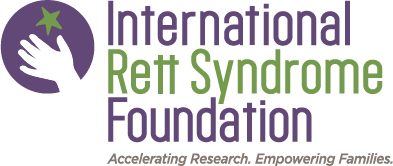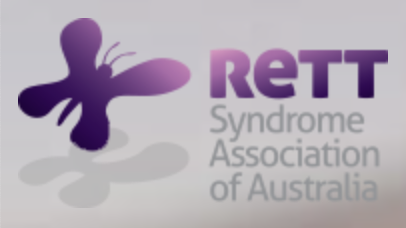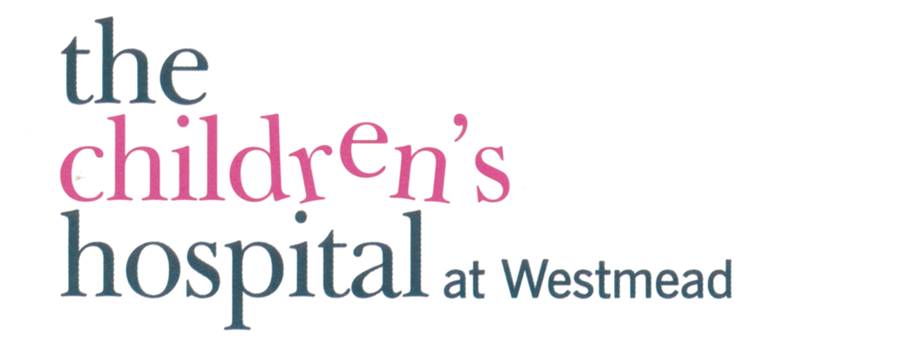Useful resources relating to Rett syndrome
This is a collection of resources that users of RettBASE may find of interest, such as information relating to reference sequences for Rett-related genes, and guidelines for mutation nomenclature. Whilst we try to ensure the external links are in order, we do not have control over their content and inclusion of a website/information in RettBASE should not be regarded in any way as endorsement for these sites.
For common reference sequences for MECP2, CDKL5 or FOXG1, see the reference sequences page.
Quick navigation:
- Rett syndrome communities
- General information about Rett syndrome and its related genes
- Other Rett-related databases
- Mutation nomenclature
- Other useful sites
RettSyndrome.org
Formerly the International Rett Syndrome Foundation (IRSF), the RettSyndrome.org is a non-profit organisation established in 2007, through the merger of the International Rett Syndrome Association (IRSA) and the Rett Syndrome Research Foundation. RettSyndrome.org assists families of individuals living with Rett syndrome by providing them with connections to critical and useful information, programs, services and support from diagnosis to day-to-day-life. RettSyndrome.org also provide funding support for research aimed at producing a cure for Rett syndrome and developing treatments to make the lives of people living with Rett syndrome richer and free of pain and discomfort. Furthermore, RettSyndrome.org advocates for and raises awareness about individuals with Rett syndrome so the scientific and medical community, policy makers, educators, care givers, and the general public can more thoroughly know, understand, and be motivated to help the research efforts and individuals dealing with Rett syndrome on a daily basis.
International Foundation for CDKL5 Research
The International Foundation for CDKL5 Research (IFCR) was incorporated as a non-profit entity in September of 2009. The idea culminated from a group of dedicated parents of CDKL5 children, who dared to dream of something life changing for their children - a cure. The parents realized there was a desperate need for education and research, and this could not be completed without funding. They decided to combine their talents and resources to establish a non-profit foundation to help meet these financial needs. IFCR is committed to collaborating with leading scientists and researchers from around the world who are dedicated to finding a cure for CDKL5.
CDKL5 forum
The CDKL5 forum is a dedicated portal that brings together users, researchers and clinicians to exchange information on CDKL5 related queries. Registering to the forum is required for acccessing the information, which is made easy with this simple tutorial video https://www.youtube.com/watch?v=d9Omsqb0464&feature=youtu.be
RettSearch.org
RettSearch is an international, multi-center collaborative network of clinically-oriented researchers. Its mission is to promote the development of new therapeutic approaches for Rett syndrome (RTT) by collecting information and pursuing research in areas of relevance to clinical trials in RTT.
International FOXG1 Foundation
The International FoxG1 Foundations mission is to provide hope and support to individuals with FoxG1 and their families via any means possible, to facilitate discussion and fund research within the medical community, and to bring awareness and education to the public.
General information
Notes regarding these websites
Online Mendelian Inheritance in Man (OMIM) is a comprehensive, authoritative compendium of human genes and genetic phenotypes that is freely available and updated daily. The full-text, referenced overviews in OMIM contain information on all known mendelian disorders and over 12,000 genes. OMIM focuses on the relationship between phenotype and genotype. It is updated daily, and the entries contain copious links to other genetics resources. This database was initiated in the early 1960s by Dr. Victor A. McKusick as a catalog of mendelian traits and disorders, entitled Mendelian Inheritance in Man (MIM). Twelve book editions of MIM were published between 1966 and 1998. The online version, OMIM, was created in 1985 by a collaboration between the National Library of Medicine and the William H. Welch Medical Library at Johns Hopkins. It was made generally available on the internet starting in 1987. In 1995, OMIM was developed for the World Wide Web by NCBI, the National Center for Biotechnology Information. OMIM is authored and edited at the McKusick-Nathans Institute of Genetic Medicine, Johns Hopkins University School of Medicine, under the direction of Dr. Ada Hamosh.
The National Center for Biotechnology Information advances science and health by providing access to biomedical and genomic information. Resources include databases of nucleic and protein sequences, protein domains and structures, homology and taxonomy, BLAST, SNP database (dbSNP) and many others. The gene entries listed above provide a good portal for linking all related contents and information for each gene. For gene entries for other genes or homologues in other species, please search the Gene page.
PubMed comprises more than 23 million citations for biomedical literature from MEDLINE, life science journals, and online books. Citations may include links to full-text content from PubMed Central and publisher web sites.
GeneReviews are expert-authored, peer-reviewed disease descriptions ("chapters") presented in a standardized format and focused on clinically relevant and medically actionable information on the diagnosis, management, and genetic counseling of patients and families with specific inherited conditions.
GeneCards is a searchable, integrated database of human genes that provides comprehensive, updated, and user-friendly information on all known and predicted human genes. GeneCards extracts and integrates gene-related data, including genomic, transcriptomic, proteomic, genetic, clinical, and functional information. This is automatically mined from >100 carefully selected web sources, thereby allowing one-stop access to a very broad information base. GeneCards overcomes barriers of data format and heterogeneity, and uses standard nomenclature and approved gene symbols. It presents a rich subset of data for each gene, and provides deep links to the original sources for further scrutiny. GeneCards is widely used, and assists in the understanding of gene-related aspects of biology and medicine.
Other databases
InterRett and AussieRett
AussieRett was established in 1993 and aims to collect information about all children and adults in Australia with Rett syndrome. InterRett was established in 2002 and collects information about children and adults with Rett syndrome of any age from around the world. InterRett is the first-ever project collecting data on a global basis about Rett syndrome. Funded by the International Rett Syndrome Foundation, this international online database examines the clinical features and genetic characteristics of Rett syndrome. InterRett is playing an invaluable role in:
- development of partnerships between families and clinicians and in advancing knowledge about Rett syndrome;
- increasing the clinical understanding of Rett syndrome;
- providing a new way to help families affected by the disorder, health professionals and the general public learn about Rett syndrome;
- encouraging collaboration with researchers from around the world.
Rett Database Network
http://www.rettdatabasenetwork.org/
The aim of the Rett Database Network is to connect existing databases of Rett Syndrome patients in order to create a unified repository of patient clinical and mutational information. It incorporates data from four large national databases on Rett syndrome in Europe: "SYRENE" in France, the "Italian Rett database and biobank" in Italy, the "Barcellona Rett database" in Spain and "BIRSS" (British Isles Rett Syndrome Survey, funded by RSAUK) in the UK. Note: log-in required for access.
MeCP2.org.uk
Note: MeCP2.org.uk, estabablished in 2003 by Dr Brian Hendrich and Skirmantas Kriaucionis at the University of Edinburgh, is no longer maintained and data is no longer available.
Human Gene Mutation Database
Hosted at the Institute of Medical Genetics in Cardiff, the Human Gene Mutation Database (HGMD) represents an attempt to collate known (published) gene lesions responsible for human inherited disease. This database, whilst originally established for the study of mutational mechanisms in human genes (Cooper and Krawczak 1993), has now acquired a much broader utility in that it embodies an up-to-date and comprehensive reference source to the spectrum of inherited human gene lesions. Thus, HGMD provides information of practical diagnostic importance to (i) researchers and diagnosticians in human molecular genetics, (ii) physicians interested in a particular inherited condition in a given patient or family, and (iii) genetic counsellors. N.B. The public version is open to only registered users from academic institutions or non-profit organisations. A license is required to access the most up-to-date version of the database (HGMD Professional) or for commerical users.
Leiden Open Variation Database (LOVD)
LOVD's purpose : To provide a flexible, freely available tool for Gene-centered collection and display of DNA variations. LOVD 3.0 extends this idea to also provide patient-centered data storage and storage of NGS data, even of variants outside of genes. LOVD is open source, released under the GPL license, and is actively being improved, currently we have releases every month.
Mutation Nomenclature
Guidelines for mutation nomenclature are set out by the Human Genome Variation Society. Please consult their website for the latest recommendations. Commonly-used reference sequences for MECP2, CDKL5 and FOXG1 are listed on the reference sequences page.
We welcome any queries regarding mutation nomenclature for any of our listed variants or other unpublished MECP2, CDKL5 and FOXG1 variants. Please email us at john.christodoulou@health.nsw.gov.au with your questions or comments.
Information regarding general mutation nomenclature: Download
Information regarding complex mutation nomenclature: Download
Mutalyzer
Mutalyzer is a suite of programs that checks sequence variant nomenclature according to the guidelines of the Human Genome Variation Society. Interfaces include Name Check, Syntax Checker, Position Converter, SNP converter and Name Generator.
Other useful links
Rett Syndrome page at RareDiseases.About.com
http://rarediseases.about.com/cs/rettsyndrome/
This page contains a list of websites providing information about Rett syndrome in different languages.
GeneTests
The GeneTests website provides a portal to search for laboratories offering testing for MECP2, CDKL5, FOXG1 or any other genetic disorder.
National Organization for Rare Disorders
The National Organization for Rare Disorders (NORD) is a federation of voluntary health organizations dedicated to helping people with rare "orphan" diseases and assisting the organizations that serve them. NORD is committed to the identification, treatment, and cure of rare disorders through programs of education, advocacy, research, and service.


